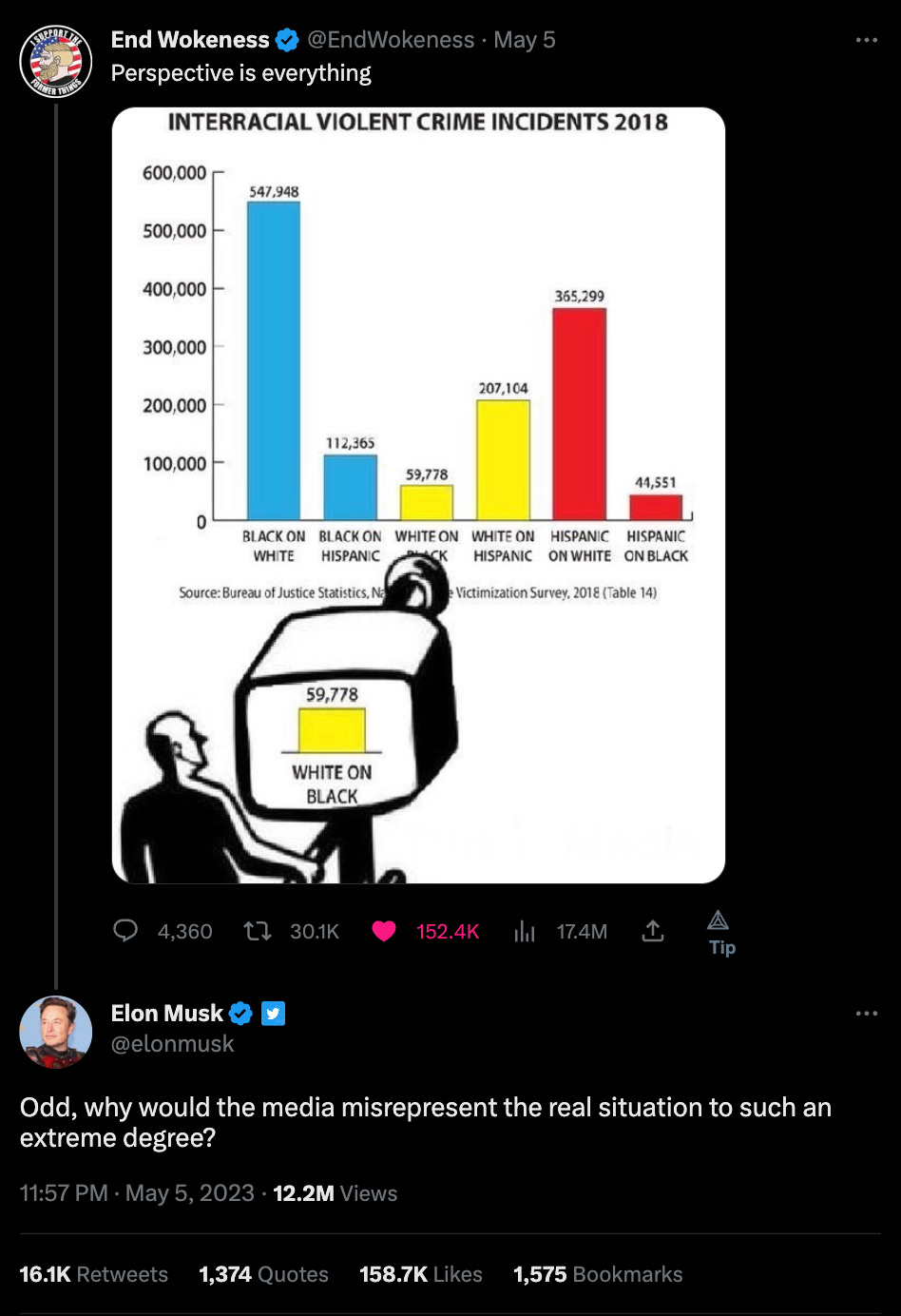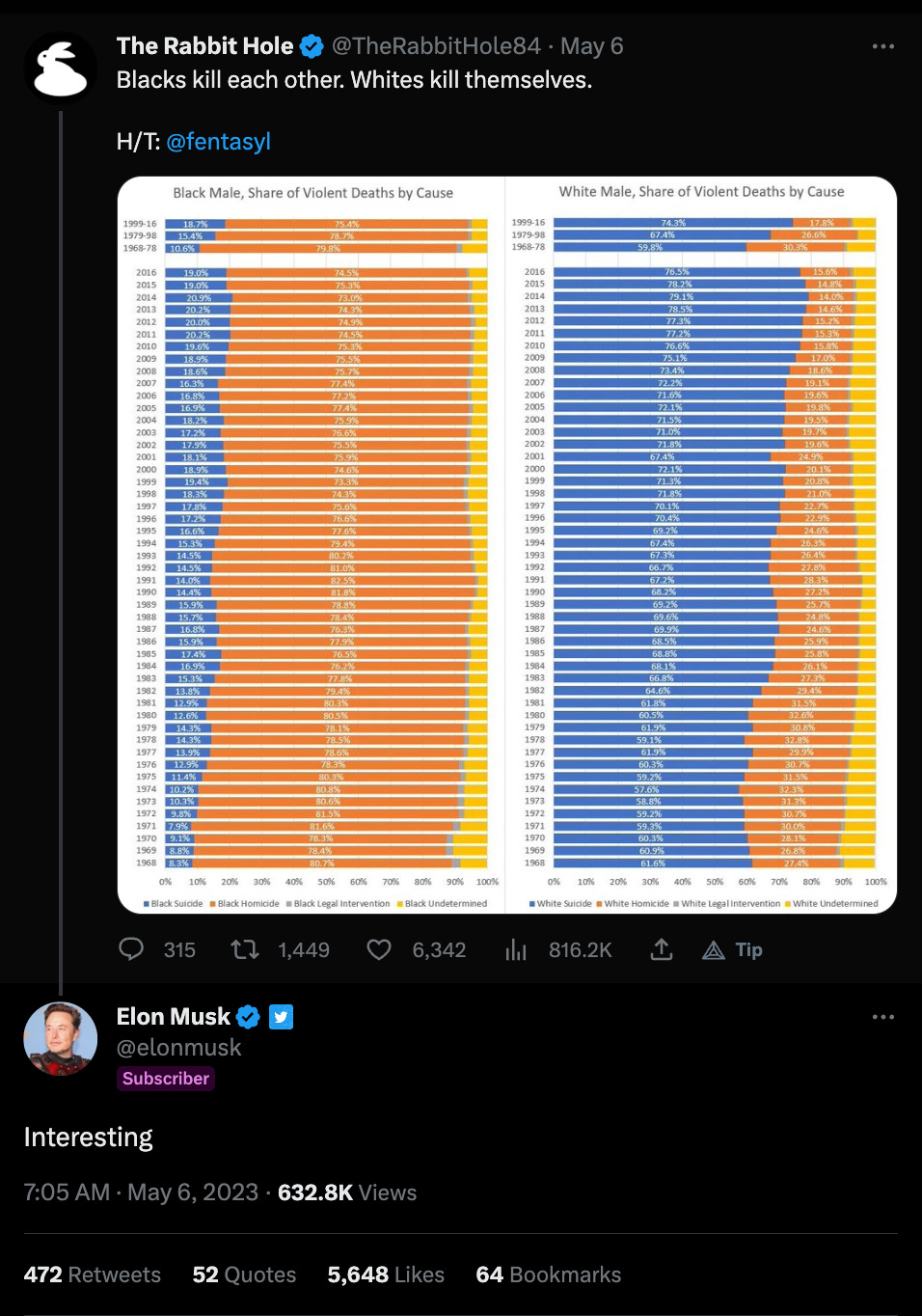“Interesting.”
The power of a single word from a powerful and pissed off man
For our entire lives we have laboured within the miasma of a carefully constructed, painstakingly maintained narrative built entirely of falsity. Before the Internet the lies were propagated by mass media. The vast financial resources necessary to maintain broadcast networks and newspaper publishing and distribution corporations meant that the money power dictated the message. What you read in the morning paper or watched on the evening news was only that information deemed appropriate for insertion into your brain. More often than not this was simply defined as whatever was profitable. The stability of society, the health of the body, the happiness of the individual, the prosperity of the family counted for nothing.
The lies were of many varieties. Sometimes, rarely, they would simply be manufactured out of whole cloth – Kuwaiti babies dumped from their incubators, Nigerian yellowcake for the Iraqi WMD program, saturated fat causing heart disease. More often the facts would be technically true as presented, with the lies being by omission – crucial elements left out of the story in order to shape it into a narrative that supports the Narrative.
This is not a question of whether Big Government or Big Business has been guilty of the greater violation. Both are at fault. The techniques of advertising, marketing, public relations, “nudge units”, and the rest of the weaponized pyschological arsenal deployed by these liars have been enthusiastically embraced by both the servants of state and market because those cognitive munitions have been so very useful for the social engineers who have been moulding our cultures and our minds for their own benefit, and to our immeasureable detriment.
The Internet promised to change all of that, and it did, gradually, but not without a fight. When the many-to-many model of viral media distribution rose to challenge the one-to-many model of centralized broadcast, the symbol manipulators were faced with a problem. Suddenly, they had to compete with bloggers in their pyjamas, poking holes in various aspects of the Narrative for funsies. The comments sections began filling up with plebs talking back, questioning what they’d been told by the newsroom’s rented parrots, and sowing skepticism in the ranks. Social media enabled ordinary people to talk to one another on a vast scale, their remarks reaching perhaps millions of eyes rather than just the ears of their friends at the local pub.
By the end of the oughties, this dissonance had spilled out of the fiber optics and into the streets. Tea Partiers and Ron Paul ReLOVEutionaries on the right, #Occupy protesters on the left; both amorphous, leaderless movements bringing the dirt people together across their disparate ideologies with the common rallying cry to bring the one percent to heel – to make the unjustifiably wealthy and privileged stop robbing the rest of us blind with outrageous taxes and the sweetheart cronyism of private profit backed by public debt. These were the first social movements native to the Internet. The Tea Party’s propaganda was spread on YouTube and Blogs. Occupy used Twitter to do an end run around the corporate media, which spent weeks pretending that Zuccotti Park was not being occupied by thousands of scruffy anarcho-syndicalists, irredentist Trotskyists, feral anti-globalization activists, grinning libertarians, outspoken anti-war protestors, and so on. Thanks to Twitter the movement spread everywhere, with remarkable speed – everyone speaks of the epicentre in Zuccotti but there was an Occupy camp in practically every city on the planet within weeks.
Those movements were smashed, as baby movements always are. The Tea Party was smoothly absorbed into the Republican Party by the simple expedient of channelling its energy into votes for faux-dissident political candidates who promptly did what all Uniparty congressional winners do – either nothing, or the opposite of what they promised, according to their donors’ desires. Occupy was infiltrated by bad-faith actors who redirected the movement’s focus from the real privilege of the financial parasites to the made-up privilege of whites, males, straights, the able-bodied, and the “cisgendered”, causing the movement to turn upon itself in pointless squabbles that squandered its energy in cross-armed blocks and the silent adulation of jazz hands. Once it was exhausted, the camps already half-empty (for by this point all the straight, able-bodied, “cisgendered” white men had gone home), the riot cops were sent in, and that was that.
The system did not want a repeat of Occupy, for the sleep of the investor class in the high penthouses had been troubled by dark dreams of gallows and guillotines. And so, immediately after Occupy, the corporate press directed its audience’s attention to the imaginary social problems that had proven themselves so successfully divisive in Occupy itself. Words like racism, sexism, transphobia, homophobia, white privilege, microaggression, the entire rotten vocabulary with which we all became so disgustingly familiar during the teens, came to dominate the discourse of advanced countries.
For a time, they were content to let the plebs blow off steam on Internet. What did they care if irrelevant randos spouted off on Facebook? They controlled the prestige press, the cultural high ground, and therefore they set the parameters of the discussion. They controlled where the culture’s attention was directed, and they modelled what was acceptable to say about any given topic.
That lackadaisical attitude did not last. Soon enough, they realized that by controlling the algorithm, they could control what people see on their social media feeds, thereby influence their beliefs using the words of their own friends, and from this influence what they say. If anything this was even more effective than the narrative control provided by corporate media: people are more likely to trust those they know personally, after all this is their friends speaking. Moreover, when people say and write things themselves, the beliefs they articulate become even more entrenched; this was used as a brainwashing technique by the Vietnamese communists. It did not take long for the algorithm to shape a critical mass of the population into easily directed hate mobs which could be used to target the intellectually disobedient for cancellation.
The heady freedom of the early days of social media quickly gave way to an atmosphere of fear. What you said on the Internet could get you kicked out of school, fired from your job, destroy your career. One must be careful what one said. And the boundaries of what was acceptable to say kept shifting – what was fine yesterday could be anathematized tomorrow, and the punishment for a stale tweet that had slipped out of the Overton Window could be as severe as if it had been made with defiance aforethought.
Not all were susceptible to this algorithmic grooming, and the solution was obvious enough: only post anonymously. Thus the online discourse began to divide between the woke mob, who invariably posted their socially acceptable and boring lies under their own names, and the frogs, who spoke hilarious truth behind anime avatars. But no one took the frogs seriously, and so for a time they were permitted to speak.
Then Trump happened, and everything changed. The power structure realized that it could no longer allow anonymous cartoon frogs to make their jokes. The frogs had discovered the power of the meme, and weaponized it. True things could be compactly packaged in humourous images and instantly puncture narratives built of tens of thousands of false words. This power pushed Trump into the presidency.
This time the system responded with the Great Shuttening: the censorship regime that has prevailed for the last several years. Comments sections disappeared on the corporate news sites, or were limited to paying customers. Trust and Safety councils implementing opaque terms of service served as digital zampolit, yeeting accounts that said true things from the Big Tech platforms. Antifa served as the digital stasi, hunting down frogs to doxx them and open them to cancellation, with all the personal and professional consequences that followed.
All of this went into overdrive when Covid hit.
But a funny thing happened during Covid.
You see, it was one thing to not be allowed to say true things about the consequences of immigration, which after all are largely in the future and therefore have relatively little immediate effect. Similarly with issues such as black crime, which is a problem but not one that has yet affected most people. Likewise when it comes to Pride or the trannification of the youth – for most people, these subjects are still somewhat theoretical, they can be avoided to a certain degree. As for the fraught subject of women, while this indeed affects almost everyone, for the most part men are quite capable of going through life believing, or pretending to believe, whatever pretty lies they are supposed to ... historically it has almost always been thus. On all of these sensitive topics, it was possible to keep one’s head down and simply pretend they were not important. Which most did.
But no one could avoid the lockdowns, the masks, the relentless attempt to jab mRNA into every arm on the planet. Covid affected everyone, with a merciless immediacy that was unprecedented in living memory. Only 9/11 comes close in terms of universal impact, but the disruptions from the fall of the Three Towers were nowhere near as severe or long-lasting as those caused by years of shuttered businesses, masks, Zoom school, and all the rest.
Of course, many were only sucked deeper into the Lie during this time. So it goes.
But many had their eyes peeled open.
So it is that we come to a certain African-American billionaire.
Musk is no culture warrior. Politically, he’s more or less a left-liberal techbro libertarian in the old 90s mould. He’s an entrepreneur and, frankly, a salesman. His schtick is to raise money by dazzling an audience of investors with visions of a technologically enhanced future filled with interplanetary rockets, electric vehicles, hyperloops, and brain-computer interfaces. He seems to genuinely believe in this future, and while not everyone shares his vision – EVs are pretty crap in most ways, and neuralink creeps most people out – at least it’s a vision. He isn’t a corpulent financial spider like Larry Fink, squatting at the middle of his over-leveraged web of assets under management as he rams ESG down the throat of every company unlucky enough to have his investment proboscis shoved into its bloodstream. Musk actually makes things, and the things he makes are pretty cool, not just more accursed software.
From very early in the Covid saga, Musk began expressing his discontent with California’s insane lockdown policies, which were ruinous for his businesses there and, as we all know now (and many of us knew then, because it was obvious), completely pointless and even counterproductive. It’s very likely that it was around this time that he started noticing the censorship-industrial complex that had taken over the Internet, and which was so effective at squashing public perception that many seemed to assume there was no meaningful level of disagreement with the wise Mandate Mandarins of the Expert Class who were busy breaking the world as fast as they could.
In any case, Musk ultimately grew frustrated enough with the Sacramento iron-clad and impenetrable hysteria that he finally moved his Tesla factory to Texas. Which is not a small thing to do, and probably pissed him off, because he could have been building rockets instead.
About a year ago, Musk’s estranged oldest son Xavier Musk changed his name to Vivian Jenna Wilson. Note that “Vivian” also elected to take his mother’s surname, having cut his father completely out of his life. I haven’t been able to find anything about whether Musk’s son has chopped his dick off yet, but it’s not unreasonable to speculate that this is very possible, and I don’t think it’s at all out of the question to suppose that this moment was probably immensely clarifying for Musk.
It was after this that Musk made his move to take over Twitter. He was very clever about it, starting his campaign with gentle trolling on the platform, polls like “Would you like to see an edit button? Yse/On”, building public support for the takeover over months before casually announcing in the manner of an off-hand shitpost that maybe he’d try to buy it. This charm offensive was highly effective – people enjoy seeing a billionaire make dad jokes at the expense of stuffed shirts with the charisma of rabid hamsters. Then it went back and forth with Twitter’s management and the Delaware courts, for months, Musk playing hot and cold, now I’ll buy it, now I won’t, now I don’t want to, please don’t throw me into the briar patch, oh well if you’re going to make me buy it....
In retrospect, I do not think any of this was happenstance. This performance was for public consumption as much as it was a mind game with Twitter’s former owners and managers. Rather than seeing a plutocrat buying his own personal social media platform the way that nerd Bezos pocketed the Washington Post, which was really just a sort of pathetic vanity project grasping at cultural relevance, the people – our people, not the enemy’s, not the woke mob – saw Prince Charming storming the castle. For the price of a few short tweets, he built himself a cheering section with millions of voices.
Musk swooped onto the Bird Site like a hawk diving on a chickadee, clearing out the useless cruft of Girls in Tech Posting Day-in-the-Life TikTok videos which apparently made up 80% of the workforce, eliminating the censors, and handing over the previous regime’s dirty laundry of collaboration with the Washington Swamp to high-profile independent journalists from across the political spectrum. Musk’s Twitter isn’t without problems, just ask Substack writers, but it’s a huge improvement from before. Just ask the NPC mob.
A few days ago, something happened that I think is very significant:
With one short tweet, Musk brought the issue of media distortion of interracial crime rates front and centre for his 139.3M followers.
And then the very next day, Musk followed up:
Consider the power of that. “Interesting.” With a single word, Musk changes the conversation about inter- and intraracial crime. As the owner of the platform, he signals to everyone that on his platform it is now okay to notice the things we all know are true. Your account will not be shadowbanned or deleted for posting FBI crime statistics and having frank discussions about these numbers. It is now acceptable to notice that it is mostly blacks who are committing acts of racial violence ... and that the media has been lying by omission and implication about this obvious fact for several infamous years.
As an aside, I don’t think Musk was actually all that surprised by this. Musk is South African, remember. You don’t grow up in a country that’s been torn to shreds by being forced to conform to America’s official race pieties without being at least slightly red-pilled on the subject. I do not mean to imply that Musk is something so gauche as a racist, that he mutters kaffir under his breath when inconvenienced by the antics of urban yoofs. Racism is bad for business, and Musk is all about business. However. Musk is 51 years old, so he was alive during Apartheid, when South Africa was a nuclear power with a space program, and he’s watched as his homeland has degenerated under the sweaty palm of racial Marxism into a failed state without a functioning electrical grid. South Africa had a space program, and race Marxism killed it. Musk really wants a space program.
The Rabbit Holewrote up his interaction with Musk, and Musk’s other recent tweets on similar subjects, in some detail, and he suggests that this marks an inflection point in the system’s ability to control the narrative.
I agree.
This isn’t just about Twitter.
When Substack rolled out Notes a few days ago, almost instantly the usual suspects rolled in and started wailing for Big Sister to stop people from saying mean things they don’t like, because harm avoidance and don’t you care about literal violence from mean words? In other words, exactly the social pressure tactics these people have used so successfully for years now to seize control of the parameters of discourse on tech platforms.
It didn’t work.
I did my bit, writing up a defense of lexical liberty, and a few other writers did the same, but to be honest I don’t think it was even necessary. The Substack team have continuously demonstrated their commitment to free speech, and they have stuck by those principles. The wokescolds trying to concern troll the platform into silencing their ideological opponents were shouted down by writers who have had it up to here with their shit, and they were simply ignored like tantruming toddlers by Substack’s management, which had to be the most vicious neg of all.
Then there’s the Tucker drama. He was the one, sole, and only personality on corporate television saying anything remotely honest or interesting, and as a direct result of that he had a vast audience. He finally became too entertainingly truthful, so Fox canned him. Fox’s ratings and stock price immediately nose-dived. Now, Tucker is going to be setting up shop on Twitter as an independent journalist, where he is all but certain to make scads more money than he did before, reach incomparably more people, and further enrich Elon Musk by a fractional amount. Fox, meanwhile, is now as irrelevant as MSNBBCNNBCBS. The only people who still watch network news are boomers. Who, if you’ve noticed, are rapidly aging out of this mortal coil.
Sometime during the COVID years, we hit something like a tipping point in the relationship between the legacy and independent media. Previously, it was the ‘mainstream’ media that set the narrative: they’d decide what we’re going to talk about today, pump out some tendentious and manipulative nonsense, and the ‘alternative’ media would then critique it – identifying inconsistencies, awkward facts that had been left out, obvious fabrications, and so on. The alt-media was almost purely reactive. That changed sometime in 2022, I think. The legacy media now spends as much time responding to ‘rumours’ and ‘disinformation’ and ‘conspiracy theories’ and ‘extreme far right hate speech’ coming out of the thriving independent media ecosystem as it does seeding narratives of its own. Meanwhile, a lot of us have simply stopped paying attention to corporate media entirely. I can’t remember the last time I read a NYT article, or watched a CNN clip, except maybe to laugh at them. More or less my entire media diet comes from social media shitposters, essayists, citizen journalists, podcasters, and YouTubers.
Musk’s recent antics on Twitter signal, I think, another tipping point. Fear is the mortar that the system uses to hold together its edifice of narrative control. Censorship is an active process, like weeding or epidemiology: an endless game of whack-a-mole, trying to hammer down the worst actors as new ones continuously appear. It’s expensive, labour-intensive, and exhausting. For it to work, the majority of the population have to be intimidated into biting their tongues, for fear of being one of the unlucky few to draw the ire of the mob, the state, HR, what have you, and be made a public example of. Punish a few, cow the many. It has to work that way. The resources to punish everyone just don’t exist, and never will. No, not even with AI.
If people stop being frightened of noticing things, the mortar holding that wall together crumbles, and with it, down comes the wall.
I don’t think people are as scared of the woke mob anymore. Everyone knows how desperately unpopular the humourless fanatics are, including the fanatics themselves, who just don’t get treated with the respect they’re used to. Everyone is sick of their shit. And now everyone can see the world’s richest man openly pissing on their sacred cows, signalling to the entire world that they are false idols, and they’re looking around at one another and saying, with raised eyebrows,
“Interesting.”
Thanks for reading! If you enjoyed it, you should subscribe for more. In the meantime you can read any of the other essays on Postcards From Barsoom, all of which are available for free. What’s that, free? Yep, free. I know, right? It surprises me, too. And you – yes, you! – can help keep it that way by becoming a paid supporter. Paid supporters don’t get any additional content (it’s all free, you know), but they do get the warm feeling that comes with knowing that they have made me very happy, postponed the time when I will have to get a real job, and in addition to all of that they receive exclusive access to Deimos Station, our orbital Martian battle-castle where I gather with my confederates to plot world domination, by which I mean mostly talking about philosophy and weight-lifting and such.
And don’t forget to











Great stuff!
The real superweapon is located in your intro paragraphs. There is discontent that appears both Left and Right but is actually neither. The old categories are breaking down.
For example, the R3VOLution was not all that right wing. It was a ragtag coalition from all over the place: gold bugs, militant southerners, hippie peaceniks, conspiracy theorists, pot heads, hardcore libertarians, and more. I ran a Ron Paul meetup and was surprised at how many hippie lefties showed up, including some serious green types.
I've walked the neighborhoods and I've distributed a libertarian propaganda newspaper in archetypical Portlandia types of coffee shops. "Anti capitalist" is not identical to socialist. Many of the green lefties want locally owned businesses. They want small scale capitalism vs. Wall St. calling the shots. "Buy local" is a battle cry that's Trumpier than Trump. There are Small is Beautiful green "lefties" who have created local currencies and experimented with alternative voting systems.
The overlap between the Green Left and the Froggy Right is much greater than most people realize.
Meanwhile the Wall St. Right has made a devil's alliance with the Marxissist Left...
Great article!
It reminds me of what the German philosopher Arthur SCHOPENHAUER once said:
“All truth passes through three stages:
First, it is ridiculed;
second, it is violently opposed;
and third, it is accepted as self-evident.”